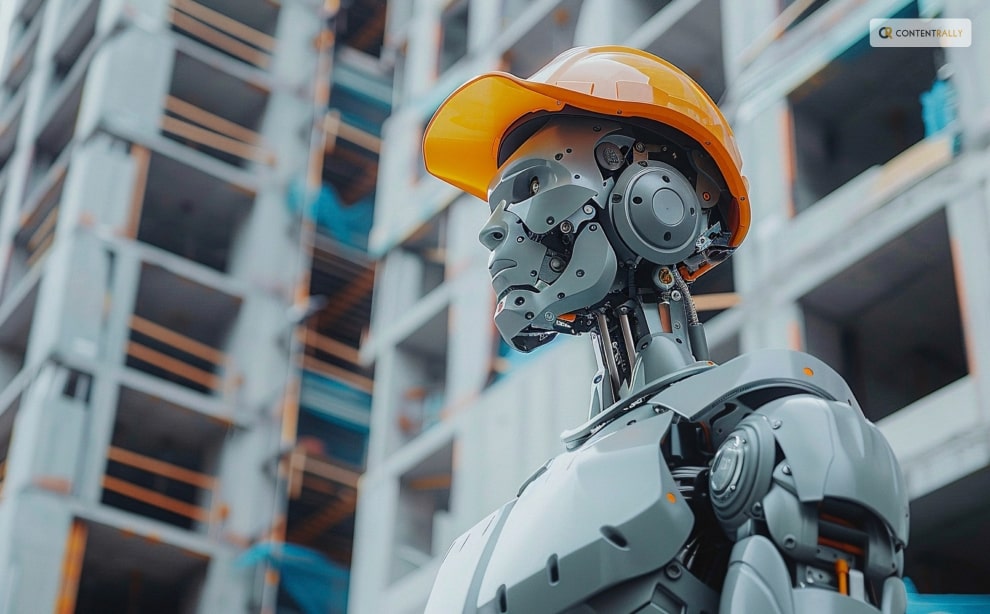Globally, artificial intelligence (AI) is gaining popularity quickly. And many leaders and experts think it has the potential to change the world economy completely. Professional services network PwC predicts that artificial intelligence (AI) will contribute $15.7 trillion by 2030.
While businesses are already adopting it quickly, inadequate planning and architecture can be a major roadblock. Indeed, according to research from technology research firm Gartner, in 2023, half of IT leaders will be unable to move AI initiatives into production.
Here’s where Artificial Intelligence architects can help. This crucial function may be essential to promoting the general adoption of AI and its effective use.
Want to know more about it and how to become one? I have you covered! Keep reading this blog till the end to learn more…
Who is an Artificial Intelligence Architect?

AI architects create AI systems to handle a variety of issues. To ensure that their solutions function properly, they bridge the gap between data scientists, engineers, and developers. For this purpose, they use their extensive knowledge of AI algorithms and frameworks.
AI architects oversee the development of an organization’s AI architecture. Additionally, they create and implement AI architecture strategies using a variety of frameworks and deployment methods.
Data scientists, machine learning operations, business leadership, and stakeholders collaborate closely with AI architects.
As an AI architect, you will play a key role in assisting companies in advancing the integration of AI into their current systems. You will be responsible for preparing those systems for new applications and programs, enabling them to stay abreast of developing trends.
These AI architects create and implement systems, procedures, and artificial networks that enable software, data, and computer capabilities for personal and commercial purposes.
An AI architect can create automated programs and artificial networks that organizations and consumers can utilize for various purposes. They can do so by using machine learning, natural language processing, data administration, and AI integration.
In simple words, an AI architect is an expert who contributes to much of this job, from safeguarding government data files to creating automated software services.
What is the Job of an AI Architect?

AI architects use machine learning (ML) and artificial intelligence (AI) to create answers to problems.
To improve computer and software functionality, they collaborate with software developers, IT teams, and ML engineers to pinpoint problems in networks, technical systems, and data modules. Some of the main responsibilities of these professionals’ jobs include:
- Researching and creating APIs for machine learning models so they may be used in various applications.
- Creating AI models that promote enhanced performance and efficiency for sales, marketing, and business information operations while aligning with organizational goals.
- Constructing infrastructure for data input and transformation technologies that departments or teams may incorporate into organizational processes.
- Organizing and creating technological and organizational operations with automated solutions.
- Supervising the creation of AI infrastructure for consumer goods and systems.
- Investigating and incorporating deep learning and machine learning architecture to develop security apps that safeguard sensitive information.
- Working together with software engineers, machine learning engineers, and data scientists to design workable solutions using ML and AI models.
How to Become an Artificial Intelligence Architect?

Now that you know what an Artificial Intelligence architect it is, it is time to learn how to be one. Let me help you out with that:
1. Get The Required Educational Background
AI architects typically have a solid computer science background or a closely related discipline. A bachelor’s degree is frequently considered a minimal qualification since working in data science and programming demands a deep understanding of these subjects.
Certain AI architects may pursue a master’s degree in data science or artificial intelligence to advance their education and employment opportunities.
2. Learn Programming Languages
The ability to work with programming languages such as Python and Java is a must for AI architects to comprehend and apply the fundamental algorithms of AI. AI architects frequently use these languages in machine learning algorithms and AI development.
Several top-notch courses and certifications are available to assist you in learning the essentials and provide you with a qualification that will make you more marketable to companies.
3. Dive Into Data Science And Machine Learning
Artificial intelligence relies heavily on data science and machine learning.
Without explicit programming or direction, computers may learn and grow. This is all due to machine learning. Additionally, data science insights help artificial intelligence (AI) make better decisions and perform better.
AI architects need to be knowledgeable in data architectures, big data, and data analysis in order to integrate this information effectively.
To improve your comprehension in any of these areas, think about taking a specialist course or working toward a certification that will verify your mastery of these ideas.
4. Master AI Frameworks And Tools
Learning the frameworks PyTorch and TensorFlow is essential if you want to work as an AI architect. PyTorch is helpful for creating deep learning models and accelerating production development following research and experimentation, much like TensorFlow.
Additionally, you want to be aware of AI tools that support cloud computing and AI solution scaling, such as Microsoft Azure and Amazon Web Services (AWS). Software for improved visualization and pipeline conversion, like as Tableau and Sisense, is also beneficial.
If you wish to get more experience before joining the workforce, several of these tools are covered in online courses and certification programs.
5. Gain Real-World Experience
Practical experience is invaluable; although though courses, books, and online how-to guides are beneficial, they cannot replace it.
You’ll benefit from taking internships, entry-level jobs, or freelancing work as an AI engineer or data analyst to get ready for your career path in AI architecture.
You will develop a solid portfolio as you work on various AI projects, which you may provide to prospective employers as evidence of your abilities.
Another great approach to develop your abilities and increase your knowledge is to collaborate with other AI experts on projects.
6. Develop Soft Skills
To become an AI architect, soft skills like problem-solving and communication are just as crucial as any technical expertise.
Gaining more proficiency in these areas can help you communicate your work to audiences who are not tech-savvy as well as those who are, and engage with other stakeholders more effectively.
You gain from having soft skills when managing projects and updating stakeholders on the state of ongoing initiatives.
Finding the most crucial qualities you want to improve is the first step in developing your soft skills. Since you can’t work on everything at once, decide what matters most and what your ultimate objective is.
From there, you may ask friends and coworkers for input, look for online resources and courses that are pertinent to the talent you’re building, and search for practical chances (like a new leadership role) to hone those skills in a real-world context.
7. Obtain Certifications
There are several professional certification choices available to AI architects. Some employers may require certain qualifications for specialized tasks, even though many of the available certifications are optional.
Credentials in cloud architecture, data management, AI engineering, programming, and information security are a few certifications to obtain.
You might also work toward certifications that will help you grow in your career, depending on your area of expertise.
For example, certifications for particular systems and applications, such as those in project management, agile development, or scrum development, attest to your technical proficiency and your adaptable leadership and teamwork abilities.
8. Keep Up With Advancements And Networking
People in the artificial intelligence industry must keep their abilities up to date because the area is always changing and evolving.
You can learn from industry experts and network with other professionals by attending conferences, following relevant social media accounts, and perusing online forums.
Is Artificial Intelligence Architect a Good Career Path?

For the ten years preceding 2032, the US Bureau of Labor Statistics (BLS) projects robust job growth across the board for computer and information technology occupations.
The Bureau of Labor Statistics (BLS) projects a growth of 8% for database architects and a 23% increase for computer and information research scientist positions.
The tremendous expansion of AI combined with the BLS’s optimism for all IT professions presents a bright picture for everyone working in AI, even though it makes no predictions specifically for AI architects.
The profession also has a strong income potential. According to Glassdoor, the average base pay for an AI architect is $142,663. There might be chances for you to receive bonuses and other types of additional income.
How Much Money Does an Artificial Intelligence Architect Make?

Because of the job’s distinct skill set and current strong demand, AI architects typically receive competitive compensation. But as you may expect, industry, experience level, and geography can all affect typical pay.
The Bureau of Labor Statistics (BLS) reports that the typical annual salary for database architects is approximately $135,000. If your income is less than $75,000, you probably earn less than the average for your industry. But the wealthiest ten percent may earn more than $197,000 a year.
While database architects in business or enterprise management may make less on average, those in computer design or infrastructure tend to make more money.
States with employment rates above 1.6 per 1,000 jobs, like Colorado and Virginia, have a higher concentration of database architects.
Database architects in California earn the highest salary in the nation, $152,960 per year. Workers in Texas, where the typical yearly wage is $146,970, are just a few thousand dollars behind.
Wrapping it Up!
In case you wanted to know about Artificial Intelligence Architect and how to become one, I hope that this blog has been of help to you. If you have any other queries, please feel free to let me know. All that you need to do is scroll down till you reach the bottom of the page. Then leave your comments on the box below. And I will be there to answer them all for you!
Learn More About:
- How To Become A Speech Language Pathologist? Get To Know Here
- How Artificial Intelligence Is Helping Banking And Financial Institutions?
- How To Become A Blockchain Developer In 2024? Is It A Good Career Path























